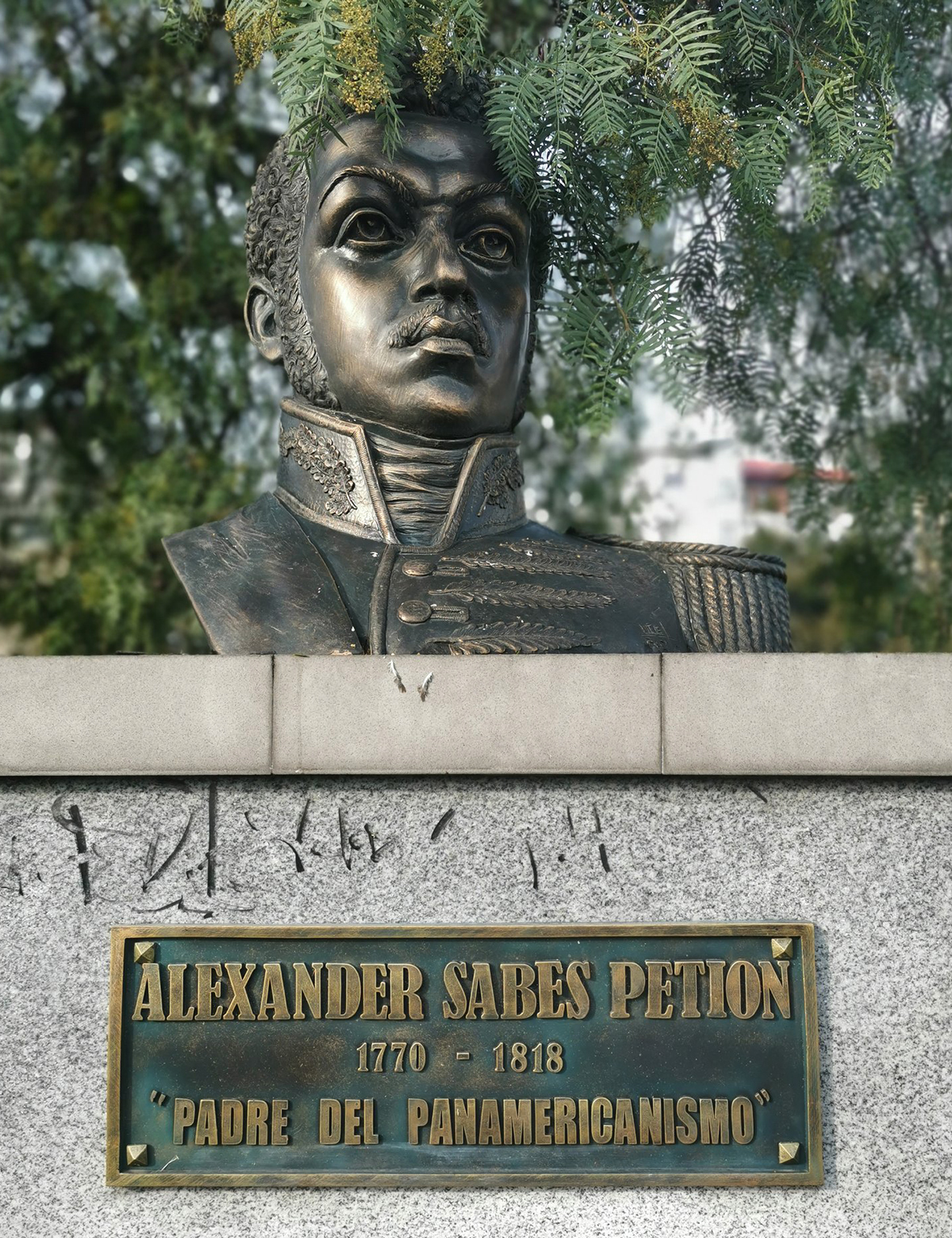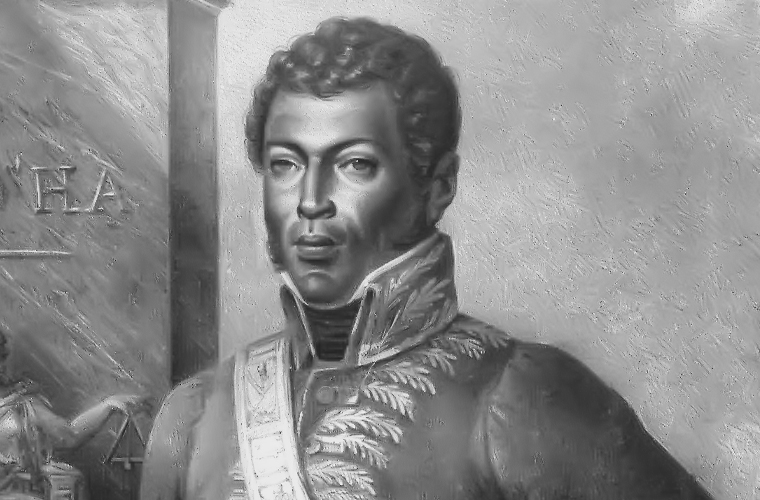Alexandre Sabès Pétion (b. 2 April 1770; d. 29 March 1818), President of Haiti (1807–1818). Born in Port-au-Prince to a mulatto mother and a wealthy French father, Paschal Sabès, Pétion belonged to the Liberto (free colored) class of Port-au-Prince. He was despised by his father, perhaps partly because of Pétion’s dark skin color. It is unclear why he used the name Pétion instead of Sabès. (Pétion is from the patois Pichoun, meaning “my little one,” a nickname given to him by a foster mother.) At age eighteen, after serving as an apprentice to a blacksmith, Pétion enlisted in the colonial army. By age twenty-one, he had distinguished himself and risen to the rank of captain. Later, in the ranks of Toussaint L’ouverture, he proved to be a skilled soldier and an excellent leader. In 1791 he joined the mulattoes in the uprising led by Boukman, a fugitive slave from Jamaica, and later was among Toussaint’s troops who fought the British.

Pétion’s alliance with Toussaint did not last, for he chose to fight in the ranks of General Charles Leclerc, sent by Napoleon in 1802. He soon realized, however, that victory for Leclerc and the French would mean a loss of rights for Haitians, both blacks and mulattoes. It was then that he joined the ranks with Jean Jacques Dessalines. He was one of the first to declare the rights of the members of his class, both political and civil equality with the whites, in accordance with the French Constituent Assembly’s “Declaration of Rights of Man and Citizen.” During the civil war of 1800, Pétion was exiled to France. In 1801, he returned to Haiti, where he began to actively fight for its independence. Pétion and Dessalines are credited with creating the Haitian flag.
In 1806, Pétion founded the Republic of Haiti and was the main force behind the country’s constitution. Elected to the presidency by the Haitian Senate in 1807, Pétion was reelected in 1811 and in 1815. He never reconciled himself to the idea of Haiti as a black state. His hope was for a republic governed by an oligarchy of mulattoes. As a result, racial tensions intensified during his presidency. Nevertheless, he is remembered as a great leader of the independence movement and was praised by many of his Latin American contemporaries, including Simón Bolívar, who visited him in 1815–1816. Pétion supplied Bolívar with troops and support for the liberation movement in Venezuela. Pétion is also remembered for his role in the distribution of land to the veterans of the War of Independence. Nonetheless, he did not achieve his economic and political goals. At his death, Haiti had gone from the most productive colony in the hemisphere to the poorest.

